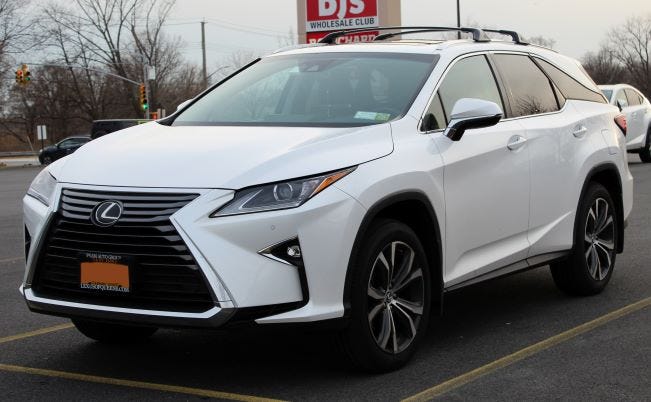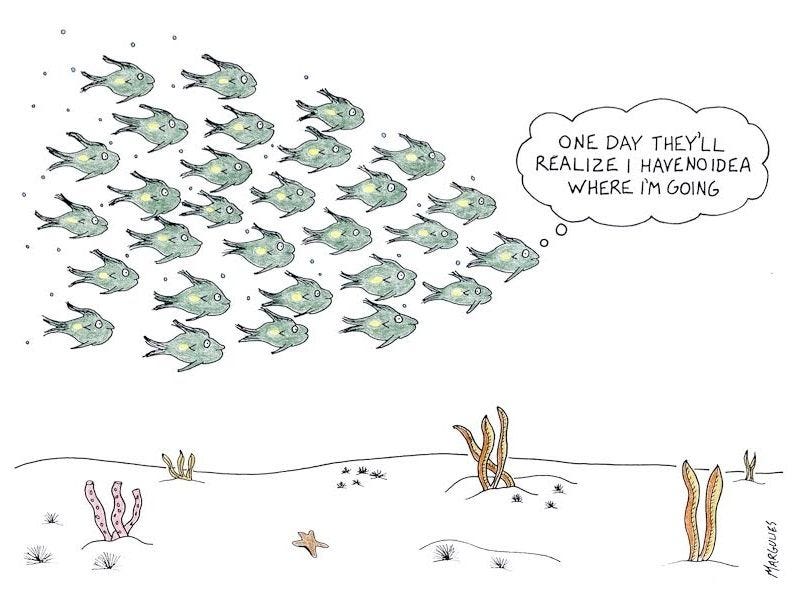Mental Models: Use First Principles to Rebuild Beliefs
What can we do about our long held beliefs?
An argument with my dad taught me to think clearer.
My parents have sought a new car for at least 5 years. My dad has proclaimed, “I’m waiting for our neighbor's car lease to end. We’ll get a deal if I pay the lease buyback price.”
When car leases are up, there is an option to purchase the car from the dealer at a negotiated buyback price. Buyback prices can be below market value. If my dad could purchase the car at the buyback price, he would score a deal.
“Always seek the best deal for something,” my dad has always espoused.
When their neighbor’s lease was up and the buyback option was made available, my dad deemed the deal not good enough. And so he’d wait until the next lease was up. After all, their neighbor upgraded to a Lexus, and surely my parents would get an even better deal on the higher depreciation.
Finally, after more than 5 years of waiting, the lease on their neighbor’s Lexus was up. Excitement and relief spread as my parents looked forward to replacing their aging Honda1.
Except their neighbor decided to buyback the leased car themselves.
“No problem,” my dad said, he’ll search for other deals.
For most of my life, I lived my dad’s mantra. I sought the best deal for everything I purchased. Why pay more when you can pay less? With patience, the best deals are to be found. The idea seems so simple and obvious. Of course I’d follow it.
Except this time, I found myself in disagreement with my dad. I pleaded with him to just pay full price and buy a new car. He refused. He held ardently to find a deal and wanted to do more research.
I was exasperated. I took my parents to a new car dealer, had my dad test drive and approve one of the cars, and pushed them to place an order that weekend. It seemed ridiculous to hold steadfast to finding the best deal on something.
How did I go from living the same beliefs as my dad to hearty disagreement?
In this post, I’ll look at why we take some ideas as true and how we can think deeper about what ideas we adopt for ourselves.
Default thinking - Where do our beliefs come from?
Default thinking is when we accept the thinking presented to us. I think we do this much more than we realize. When I look back at why I believe certain things, two reasons stand out: status quo and authority.
Status Quo
“This is how things have always been”
“This is how others do it”
Status quo thinking is when we accept something because that’s how things are. We easily assume other people know what they’re doing. If somebody believes or acts a certain way, particularly with confidence, we assume they’re correct. The larger the number of people who believe or do something, or the longer the action or belief has been a certain way, the more we assume they’re correct. Status quo all around us because it’s easy. It’s comfortable to follow along with others.
Authority
“Because they said so”
We look to authority figures, such as our parents, for guidance. Authority figures have knowledge or experience which we assume entails their information to be correct. We look up to and respect our parents, and we accept their ideas our of respect, admiration, or because we’re told to. Often times our parents and other authority figures are correct, but our bias to default thinking hinders us from evaluating ideas further.
What can we do to improve our thinking?
When evaluating ideas and forming our thoughts to an idea, we can do the following:
Understand the idea
Review with what we deem true
Form our position
This structure is a variation on the idea of first-principles thinking, where we reason from fundamental truths and use basic building blocks to develop further ideas. The idea is to step back from higher level ideas and to think bottoms up from what we know.
“When you apply first-principles thinking, you switch from being a cover band that plays someone else’s songs to an artist that does the painstaking work of creating something new” - Ozan Varol, “Think Like a Rocket Scientist”
Understand the idea
It’s important to understand the perspective behind any idea. With my dad’s position on getting the best deal for anything, I’d have to think about why he holds the idea that we must always find the best deal. What does the idea accomplish? Why does he believe strongly in this idea?
The perspective behind the idea provides the starting point for any further understanding.
Is the idea relevant and applicable?
With an understanding of the perspective, we can check if the idea is still relevant. Perhaps times or situations change. For example, my dad may have sought the best deal out of necessity, as costs over a certain level could’ve meant the item was completely out of the question. However, at my dad’s current stage, a reliable and safe car in time for the Canadian winters is probably more important than getting the best deal possible for a car.
What could be negative implications of the idea?
It’s easy to forget to examine ideas from different angles - where could an idea could be false or what the negative implications could be? For example, if following the creed of getting the best deal for anything, I might walk into Costco and find that ice cream, at a per pint basis, is by far the best deal at Costco (and that Kirkland Signature brand is amazing.. but that’s a different discussion). However, I would end up with far too much ice cream for just me - I either waste the ice cream, or I ingest and gain far too many pounds. Either way the negative implications of the low cost ice cream outweighs the benefit of paying the least.2
Review with what we deem true
We already know certain truths and we hold certain values in various priority. We can crosscheck any idea for alignment with what we value. For example, I value time as a priority. While I also love paying less for items, since I value time as priority I should be comfortable paying more if I can save time. Given I value both time and saving money, knowing my priorities help me make the best choice for me given tradeoffs.
We have our own goals and values, and it’s easy to forget to check how any idea aligns or not with ourselves.
Form our position
With an understanding of where an idea comes from and a review of what we value, we’re in position to form our own position.
This doesn’t mean we assert what we’ve always believed. Rather, it means to take the various perspectives and form our position. This position may be the same as what’s presented, the same as what we already believe, or a modification of either. We might find that we come up with something new instead.
“Hold and explore conflicting possibilities in your mind while moving fluidly toward whatever is likely to be true based on what you learn” - Ray Dalio, Principles: Life and Work
Should we not take advice from others then?
Ray Dalio, in his book “Principles: Life and Work,” suggests we seek advice from “believable people.” Dalio defines believable people as “people who have repeatedly and successfully accomplished the thing in question - who have a strong track record with at least three successes - and have great explanations of their approach when probed.”
The idea is to seek advice from people who are credible. Their insight is more likely to lead to a better decision. This also implies that we shouldn’t just seek advice from the most readily available people around us.
Strong opinions, weakly held
Ideas and opinions often seem to be held dearly within us. Our opinions and ideas define us. While this could be perfectly fine, I think it’s crucial that we evaluate, and re-evaluate what we believe and what is presented to us. Times change, we change. Or we may just have been wrong.
If we go on holding on to outdated, irrelevant, or incorrect ideas, we could end up with the opposite of what we truly want.
“Any year that passes in which you don’t destroy one of your best-loved ideas is a wasted year” - Charlie Munger.
Back in Toronto car shopping, my dad has finally relented to the purchase of a new car.
On a breezy fall Saturday, we visited six car dealerships. Exhausted at the end of the day, we’ve settled on a Nissan Leaf. All cars have about a year wait (due to COVID-19 supply chain disruptions) and a deposit to confirm order. We agree my parents will place an order first thing Monday when the dealer is open again.
However, on Tuesday my sister notifies me our dad did not order the car. The car we painstakingly picked out. He placed an order for a completely different vehicle.
“The deposit was cheaper,” my sister says as she explains my dad’s rationale.
Of course it was.
The Honda has since broke down and was sold for scrap. Aging was an understatement.
Costco also has a unique way of getting me to buy way more things I wasn’t looking for or knew I wanted.





